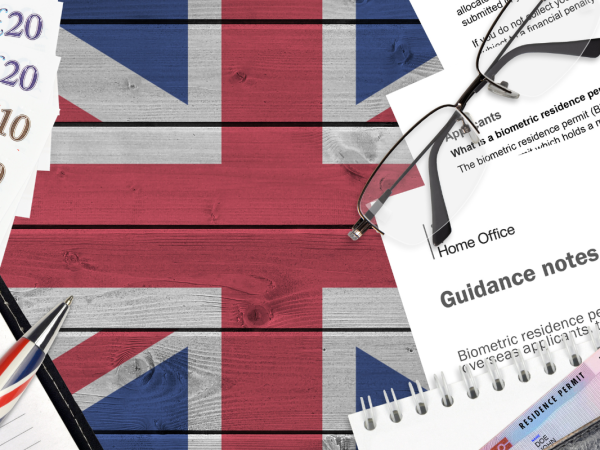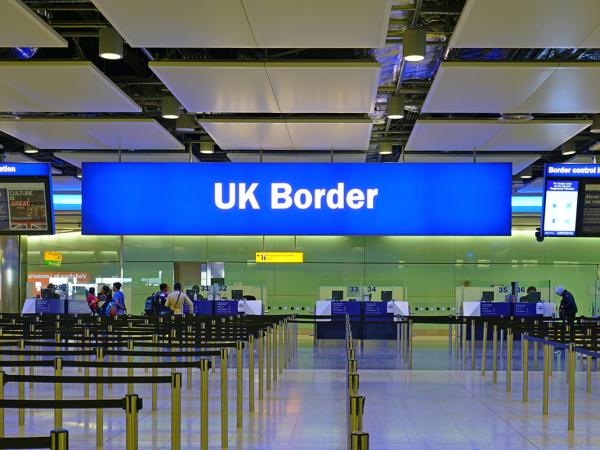Double taxation
You may have to pay taxes in both the UK and another country if you are resident here and have income or gains abroad, or if you are non-resident here and have income or gains in the UK.

Content on this page:
Overview
Each country has its own tax laws. The fact that you pay tax in one country does not necessarily mean you do not need to pay tax in another.
If you are:
- resident in two countries at the same time, or
- resident in a country that taxes your worldwide income, and you have income and gains from another country (and that country taxes that income on the basis that it is sourced in that country),
then you may be liable to tax on the same income in both countries. This is known as ‘double taxation’.
For example, an individual who is resident in the UK, but has rental income from a property in another country, will probably have to pay tax on the rental income in both the UK and that other country. This is a common situation in which migrants who have come to the UK to work find themselves. However, you should remember that in practice, for tax years up to and including 2024/25 the remittance basis can help to prevent double taxation where you are a UK resident with foreign income and gains abroad (assuming you are not domiciled or deemed domiciled in the UK).
Another common situation when double taxation occurs is where an individual who is not resident in the UK has UK-sourced income and is tax resident in another country.
Where two countries try to tax the same income, there are mechanisms to give tax relief so that you do not end up paying more. The first mechanism to consider is whether the double tax agreement between the UK and the other country limits either country’s right to tax that income. The second main mechanism is known as unilateral relief.
Double taxation agreements
The UK has an extensive network of double tax treaties with other countries. One of the functions of these treaties is to provide relief for double taxation by ultimately allowing only one country to tax your income or by allowing a credit for the foreign tax paid when calculating the UK tax liability on the foreign income (or the other way round).
Double tax agreements are also known as ‘double tax treaties’ or ‘double tax conventions’. If there is a double taxation agreement, this may state which country has the right to collect tax on different types of income. For an example of this, see our page on dual residence.
The method of double taxation relief will depend on your exact circumstances, the nature of the income and the specific wording of the treaty between the countries involved.
You should also be aware that some countries do not have a double tax treaty with the UK. If that is the case, you may still be able to claim unilateral tax relief in respect of the foreign tax you have paid (see below).
These situations can be very complicated. You will probably need to seek some professional advice if you find yourself in a double taxation situation.
A double tax agreement effectively overrides the domestic law in both countries. For example, if you are non-resident in the UK and you have UK bank interest, this income would be taxable in the UK as UK-sourced income under UK domestic law. However, if you are resident in France, the UK-France double tax agreement states that the interest should only be taxable in France. This means that the UK must give up its right to tax that income. In this situation, you would make a claim to HMRC (in practice, this would usually be made on a self assessment tax return) to exempt the income from UK tax.
Alternatively, they may allow a set-off of tax paid in one country against tax due in the other. If you are a UK tax resident (including UK ‘treaty’ resident), the UK will generally give a ‘credit’ for overseas tax paid on income which is sourced overseas. Similarly, if you are tax resident in another country, that country may give credit for UK tax paid on UK-sourced income (for an example of this, see below)
There is more information on foreign tax credit relief in HMRC’s helpsheet HS263 ‘Calculating Foreign Tax Credit Relief’.
In another scenario, a double tax agreement may provide for income that is not exempt from tax to be charged at a reduced rate. You can find out more about this in HMRC’s helpsheet HS304 ‘non-residents – relief under double tax agreements’ on GOV.UK.
This means that migrants to and from the UK, for example, may have to take into account two or three sets of tax laws: the tax laws of the UK, the tax laws of the other country, and any double taxation agreement between the UK and the other country.
It is also possible for there to be more than two countries involved, for example a national of one country may be living in the UK and have foreign income from a third country.
Unilateral relief
As mentioned above, even if there is no double taxation agreement, tax relief may be available in the UK by means of a foreign tax credit under UK domestic law. This has nothing to do with working tax credit or child tax credit.
For example, if you pay tax at 15% on your foreign income in the country in which the income arises, then you may still have to pay tax in the UK if you are resident here. If the UK tax rate is 20%, you would effectively only have to pay 5% of tax in the UK, as you would be given relief (or a foreign tax credit) for the 15% of tax paid overseas.
There is more information on foreign tax credit relief in HMRC’s helpsheet HS263 'Calculating Foreign Tax Credit Relief’.
Doubly-taxed UK employment income
If you come to the UK and have employment income for duties performed in the UK that is taxed in your home country, you will still usually need to pay UK tax. Your home country should give you double tax relief by giving a credit for UK taxes paid.
However, if you are resident in a country with which the UK has a double taxation agreement, you may be eligible for relief from UK tax if you spend fewer than 183 days in the UK and you have a non-UK employer.
For 2020/21 and 2021/22, if you came to the UK during the coronavirus pandemic and stayed longer than you had intended because of coronavirus travel restrictions, then you may not need to pay UK tax on employment income which you earned after you had originally intended to leave. In this situation, HMRC consider that it would be ‘just and reasonable’ to treat these earnings as non-UK sourced, provided tax has been paid on these earnings in another country. This means that such earnings would not be taxable if you are non-resident in the UK (or, for tax years up to and including 2024/25, if overseas workday relief applies and the earnings are not remitted to the UK).
Otherwise, where taxes are due in both countries, the credit will be restricted to the lower of the UK taxes suffered and the home country tax liability on the same income, which effectively means that you will always end up paying at the higher of the two rates overall.
In such situations, you should seek professional advice from a tax adviser in the country concerned.
If the tax authorities in your home country refuse to give the double tax relief, you should contact HMRC for help. You can also find out how to get help on our Getting help pages.
There are a couple of things to note about doubly-taxed UK employment income:
- Anyone who is classed as a tax resident of the UK can normally earn a certain amount of money each year, without paying any UK income tax – the personal allowance. Some non-residents can have it too – for example, if you are a European Economic Area (EEA) national or a UK national. Due to the level of the UK personal allowance (for 2024/25, it is £12,570), it is possible that any UK employment income will fall within it, meaning there is no double taxation.
- Whilst you will normally have tax deducted by your UK employer, you may be entitled to reclaim some or all of this back from HMRC. This is an important point because UK withholding tax amounts may not represent the true final tax liability. You cannot claim a foreign tax credit in respect of amounts which are refundable by the relevant tax authority.
Teachers and students
Certain types of visitors to the UK receive special treatment under the terms of a double tax agreement, such as students, teachers or overseas government officials.
For more information, you should see section 10 in HMRC’s RDR1 guidance. You could also try contacting HMRC’s Residency unit, or finding a tax adviser to help you by visiting our Getting help pages.



